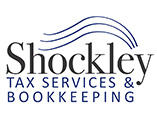Ultimate Guide for Small Business Bookkeeping
As a small business owner, there are many ways to grow your business, but all of them require plenty of time and energy to meet your goals. However, it’s easy to get distracted by all the daily tasks that keep your business running behind the scenes. Bookkeeping tasks are a common culprit.
When you struggle with bookkeeping or spend too much time on it, you can’t meet your bigger goals. The solution is to hire professional bookkeeping services. With the pros doing your bookkeeping, you’ll have all the benefits of perfectly balanced books and the time to devote to growing and scaling your business.
Not sure how to transfer your bookkeeping to the experts? Use this guide to understand how professional bookkeeping services work and can help you.
What’s included in small business bookkeeping services?
Many small business owners start out doing their bookkeeping themselves, so those tasks get mixed in with everything else you do. If you have never hired bookkeeping services before, you might be wondering what those services include specifically. After all, you need to know that they will handle all of the financial tasks your business requires.
Here are some basic bookkeeping services you can expect:
Bookkeeping:
Accurate and punctual financial tracking, including reconciling accounts, running reports, paying bills, debt collection, and data entry.
Payroll:
Setup, ACH direct deposit, payroll form management, and payroll taxes and insurance calculations.
Tax Planning & Preparation:
Making quarterly tax payments, preparing and filing annual returns, tax planning advice, tracking business expenses, reviewing tax deductions and credits, handling special filing needs, and preparing and filing amended returns.
Preparing Financial Reports:
Organizing financial records and receipts, keeping your financial file system up-to-date, and pulling reports when asked.
What are the benefits of small business bookkeeping services?
You might think you have a handle on your small business’s bookkeeping, but doing it yourself may hold you back from more important goals or result in sloppy books. If you see any of these signs, you should consider hiring the pros:
- Your books aren’t up-to-date.
- You only update your books for tax season.
- You miss out on tax deductions.
- Your cash flow is unpredictable.
- Your bookkeeping skills are lacking.
- There’s never enough time for everything.
- You feel overwhelmed.
- Bookkeeping is preventing you from growing.

- More time for your priorities
- Understand your finances better
- Receive financial advice
- Taxes done correctly
- Avoid costly mistakes
- Unbiased advice
- No more fear you’re doing things wrong
If you want to focus on growing your business without the hassle of haphazard bookkeeping, enjoy all of the small business bookkeeping benefits that come with professional bookkeeping services.
What types of small businesses benefit from professional bookkeeping services?

Still not sure if you could benefit? Here are some types of businesses that frequently utilize professional bookkeeping services for their small businesses:
- Trades – electricians, plumbers, painters, pest control, septic, etc.
- Restaurants & Retail
- Franchises
- Contractors – construction, pool service/repair, building supplies, disaster restoration, etc.
What does the process for starting new bookkeeping services include?
Starting with new bookkeeping services isn’t difficult. The key is preparation and good communication. You will need to provide certain information for your new service provider so they can jump in and start working for you. Depending on the services you require, they may ask you for:
- Tax-related forms for all employees
- Pay rates and timesheets or payroll reports for all employees
- Bank account details
- Bank and credit card statements
- Bills and vendor invoices
- Customer or client invoices
- Loan statements
- Sales reports
- Cash on hand details
To further help your service provider understand your business’s finances, you should also create a chart of accounts. This is a list of financial transactions and accounts your business uses. To make your chart, sort your accounts into these five categories:
- Assets: These are things your business has in its possession, like money in the bank, equipment and supplies, and inventory.
- Liabilities: These are your debts or money you owe, like loans, mortgages, and sales tax from goods.
- Owner’s Equity: This is everything the business owns. Money invested by the owner into the business and retained earnings are examples of equity.
- Income: This is the proceeds you earn from your business.
- Expenses: These are your business’s purchases and payments, whether that’s buying something for the business or employee paychecks.
Once they have your information, your new service should perform a one-time bookkeeping set-up for your services. Depending on how up-to-date your books are, this shouldn’t take more than 2-4 weeks.
They will enter all of your information into their bookkeeping system and return any original documents you gave them. Some services, like tax preparation, may include a consulting appointment to plan ahead and help you manage your business finances. If you have any questions about the bookkeeping setup process, just ask! Your new bookkeepers will be happy to help.
What is included in monthly bookkeeping services?
Of course, updating your books isn’t a one-time job. Monthly bookkeeping services are what you really need the experts for. But what do monthly bookkeeping services include?
Monthly bookkeeping services consist of a variety of data entry, accounts reconciliation, and reporting tasks that keep your books accurate and up-to-date so you have a clear picture of your business’s finances at any given time.
While these tasks are often referred to as monthly bookkeeping services, some are done more than once a month and some may only be done quarterly. Here are some examples of what is included in professional monthly bookkeeping services:
- Daily: check cash reserves, track incoming and outgoing payments
- Weekly: data entry, document and file receipts, review vendor bills and pay them, prepare and send invoices, prepare payroll checks, print checks or pay stubs for distribution, account reconciliation
- Monthly: review bank and credit card transactions, balance the checkbook, review overdue customer payments, process payment of payroll taxes, review payroll summary
- Quarterly: review quarterly payroll reports and make payments, review sales tax and make quarterly payments, calculate estimated income tax and make payment
Having bookkeeping services managing your finances every month ensures you never get behind. This is especially important once you reach the end of the calendar year and enter tax season. You have enough to do at that time, and the last thing you need is any surprises.
As you begin your financial spring cleaning each year, you’ll find that meeting your business obligations is easier when everything is already organized and updated thanks to your bookkeeping services. No more scrambling to verify your end-of-year payroll or wondering if all of your clients have paid. All of those year-end bookkeeping chores will be a cinch with the expert organization of your bookkeeper!
What are the best tools for bookkeeping services and how much do services cost?

- Easy to use
- Simplifies tax filing
- Has many shortcuts and tools to save time
- Is small business-oriented
- Constantly evolving to adapt and improve
- Has great automated backup service to keep data safe
- Great value
QuickBooks is flexible enough to work for any small business. For instance, service-based businesses often favor QuickBooks Online, which allows access from multiple locations and devices, but is not ideal for handling invoices or tracking inventory.
On the other hand, product-based industries love QuickBooks Desktop because of its inventory tracking and batch invoicing capabilities and industry-specific features. Your bookkeeper will know which version of QuickBooks works best for your business.
So now you know how your bookkeeping tasks will be managed, but how much will these services cost? That depends on the size of your business, the services you want, and your provider’s rates. There are also a few different costs to consider.
Bookkeeping services will often charge an initial set up fee. Depending on the service you’re starting, this could be $150-$250. After that, you will have a monthly recurring cost, which may be about $150 per service. You may also be charged for your QuickBooks subscription, which can run from $18-$26 a month.
Annual services like tax preparation can be several hundred dollars paid once a year. You may also be subject to late fees if you fail to submit financial data on time. By the end of it, many small businesses average between $500 and $2500 a month for professional bookkeeping services.
Now that you know the costs and tools for bookkeeping services, you will be better prepared to adopt the right professional services for your business.
Bookkeeping mistakes that cost your small business big
If you feel that outsourced bookkeeping costs are a little steep, consider how much amateur bookkeeping mistakes can cost you. Using professional bookkeeping services can save you the time, hassle, and money lost on DIY bookkeeping mistakes like these:
- Missing tax deadlines
- Mishandling sales tax
- Filing taxes wrong
- Throwing away receipts
- Failing to reconcile bank accounts
- Disorganized or inconsistent record-keeping
- Classifying employees incorrectly
- Mismanaging petty cash
If you do not have your bookkeeping under control, you can easily face penalties or lose vital funds. Save yourself stress and money by investing in a reputable bookkeeping service.
Hiring the right professional bookkeeper for your small business
So now that you know you need a professional bookkeeper, how do you find the right small business bookkeeping services for you?
First, decide which bookkeeping tasks you want to outsource and if you want a more cost-effective virtual bookkeeper or more personal local bookkeeper. Then search for the type of bookkeeper you want through industry associations, bookkeeping organizations, or referrals from other small business owners.
When you find a bookkeeping service that sounds good, ask the right questions to determine if they’re the right fit for you. Here are some questions to ask:
- What services do you offer?
- What are your qualifications?
- Have you done bookkeeping in my industry before?
- How do you protect sensitive information?
- How are your services priced?
- What can I expect for delivery and response times?
You want a bookkeeper who is experienced in the services you need, stays up-to-date on relevant regulations and industry knowledge, and is easy to communicate with. You also want punctual, reliable services.
Don’t settle until you find a bookkeeper who prioritizes customer service and quality work. You’ve invested a lot into your business, and you want to hire someone who will also be a valuable investment.
When looking for a bookkeeper, you may find yourself choosing between a bookkeeper, an accountant, and a CPA. In some ways, each of these professions is similar, but there are also some key differences to consider before you hire any of the three.
- Bookkeeper – keeps track of all financial transactions
- Accountant – can review your finances and give advice and financial projections
- Certified Public Accountant – does everything an accountant does but is authorized to write an audited financial statement for companies that sell shares on the stock market
If you feel an accountant would be of better service to you, be aware that they will cost you more. Many small businesses hire recurring bookkeeping services and call on an accountant once in a while to make the most of their money. Few small businesses can justify CPA services. A bookkeeper, accountant, or combination of both are the best solutions for small business bookkeeping services.
Invest in your small business with professional bookkeeping services

Looking for a bookkeeper in Oklahoma? Never worry about balancing your books again with the expert bookkeeping services of Shockley Bookkeeping. Contact us today for a free consultation and the worry-free bookkeeping services you need.





